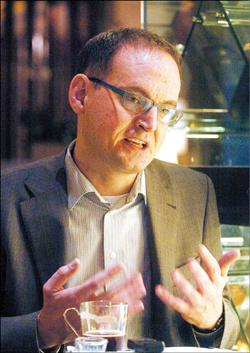November’s local elections revealed that Taiwan is not immune to populism and post-truth. Consequently, the Democratic Progressive Party (DPP) needs to improve its perception of the electorate. When post-truth dominates, feelings and personal suppositions become more important in political debates than agreed facts. Obviously, the ideal must be that facts are the outset for a political dialogue. The election of Han Kuo-yu (韓國瑜) as Kaohsiung mayor revealed that Taiwan can walk in the direction of a post-truth democracy.
November’s local elections revealed that Taiwan is not immune to populism and post-truth. Consequently, the Democratic Progressive Party (DPP) needs to improve its perception of the electorate.
When post-truth dominates, feelings and personal suppositions become more important in political debates than agreed facts. Obviously, the ideal must be that facts are the outset for a political dialogue.
The election of Han Kuo-yu (韓國瑜) as Kaohsiung mayor revealed that Taiwan can walk in the direction of a post-truth democracy.
The danger is that this post-truth direction could benefit China by creating disunity in Taiwan. It is this disunity that the results of the 2016 presidential and legislative elections seemed to promise an end to.
The result created hope for a political environment with a focus on Taiwan’s development, instead of the non-productive divide over unification with China and cross-strait relations.
A reality check reveals that Han is already trying to move in the direction of disunity after an election in which he displayed little knowledge of Kaohsiung and made overly ambitious proposals.
He openly supports the so-called “1992 consensus” used by the previous Chinese Nationalist Party (KMT) government in its dealings with China. The following economic integration with China resulted in dissatisfaction and in the Sunflower movement.
Han has also suggested that Chinese can buy real estate in Kaohsiung, and that the city should carry out oil exploration around Itu Aba Island (Taiping Island, 太平島). A necessary cooperation with China would put the US in a very difficult situation in the South China Sea.
Moreover, China is apparently planning to increase tourism to Kaohsiung, trying to create disunity in Taiwan, as Chinese tourism has reduced by about half since 2015.
Whether the Kaohsiung election is to become a guide for the future should be apparent in the coming year. Much depends on the KMT’s ability at the local level to reassert its national agenda and if it can benefit from the DPP’s challenges.
An entirely different electorate would emerge if an independent decides to run for president.
Other democracies are facing similar challenges with populism and post-truths, but Taiwan’s international status does not allow it to be considered a normal democracy. It is Taiwan’s faith to have higher standards than other democracies. It is this democratic image that generates support for Taiwan around the world.
Domestic setbacks influence Taiwan’s international image and the elections have cast doubt on the DPP government and next year’s presidential election.
Politics is about solving problems in society and creating results. The DPP seems to miss the point that it is also about communicating results and less about acting as a civil servant, and the next person in line might not be the right one for the job.
Many of the DPP’s policies appear to be correct measures for Taiwan’s future, but DPP members need to get out of their habit of bubble-thinking and only talking among themselves. They need to get out and talk with people between elections.
If the DPP’s reactive way of engaging with citizens abroad is any measure of how it talks to ordinary people in Taiwan, it is disappointing.
Populism and post-truth undermine the efficacy and legitimacy of democracy. In contrast to other countries, the consequences can influence the sovereignty of Taiwan.
Taiwan’s faith demands that it has higher democratic standards that can drag the nation away from populism and post-truth democracy. Fair or unfair, this is the condition that Taiwan is living under.




